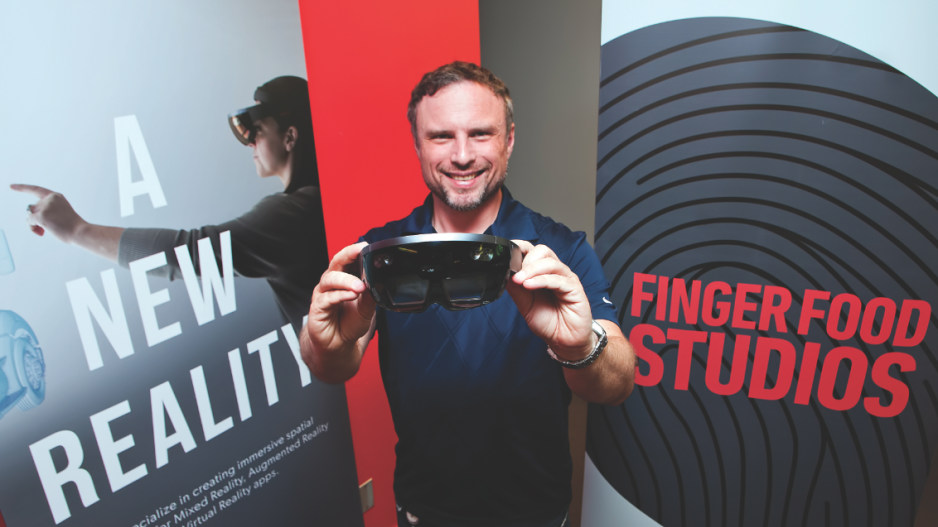What happened: Finger Food Advanced Technology Group is being acquired by a U.S. tech company
Why it matters: Even amidst pandemic, a number of B.C.-based augmented reality companies are proving buoyant
One of B.C.’s leading augmented reality companies has been acquired by an American firm looking to expand beyond gaming.
San Francisco’s Unity Technologies says it plans to hang on to all 200-plus employees of Finger Food Advanced Technology Group as part of the acquisition announced Thursday (May 7).
Terms of the deal were not disclosed, but the Port Coquitlam-based tech company will be absorbed into Unity Industrial — a division focused on enterprise services in the realm of real-time 3D (RT3D) content.
Finger Food Technology is best known for developing enterprise-focused applications for augmented reality headsets.
The B.C. company is a long-running partner of Microsoft Corp. (Nasdaq:MSFT), using the latter’s HoloLens headset to project three-dimensional digital images into one’s field of view as if it were appearing before them in real life.
For example, a process known as digital twinning would allow designs for a jet engine to be transferred from a computer into a HoloLens to make it appear at full scale in front of the user.
Finger Food has developed applications for Enbridge Inc. (TSX:ENB), SoftBank Robotics and Lowe's Companies Inc. (NYSE: LOW).
Unity said it’s been making traction deploying its RT3D platform into enterprise-focused uses over the past two years.
“The reality is we’re just getting started,” Dave Rhodes, a senior vice-president at the company, said in a statement.
“Finger Food has already had a lot of success applying RT3D to these industries and others, solving customers’ hardest problems. Together we will provide the solutions and services all businesses need to get their RT3D visions off the ground.”
Finger Food CEO Ryan Peterson said the acquisition deal will give his company more access to Unity’s engineering expertise to help shape the future of the RT3D platform.
The B.C. company has also been involved in the fight against COVID-19.
In late April, the Vancouver-based Digital Technology Supercluster revealed it was committing $60 million of its $153 million budget from the federal government towards tech that could address the pandemic.
Among four projects to initially get the nod was Lifesaver — Predicting Emerging Pandemics.
Led by Finger Food, the project is developing a platform using data from sources ranging from health authorities to weather services to better predict emergencies and deploy needed resources
And Finger Food isn’t the only B.C.-based augmented reality company to be completing big moves amid the pandemic.
Vancouver-based Form Athletica Inc. announced April 21 the close of a $12 million Series A funding round to push its augmented reality devices into new markets and invest in new products and services.
The company is best known for developing swimming goggles that display swimmers’ real-time stroke rate and other metrics within their line of sight.
Swimmers can then review the data through smartphone apps.
The wearables retail for US$200. Ten thousand units were sold last year following an August launch.




